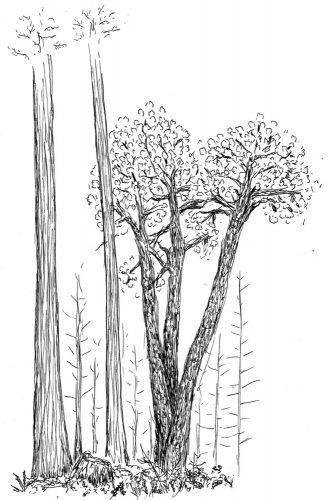
My birthday in mid-August has always signaled when the Himalayan blackberries reach peak production. If I hadn’t been out to pick berries by then, it was time to go down to my favorite neighborhood brambles to pick enough for blackberry jelly. This year the best berries came on early. Ongoing drought coupled with a heat dome caused many berries to dry on the vine before reaching maturity. Only patches close to water or nearby watered areas have big and juicy ones.
Water conservation measures have led to dry lawns in town. Allowing lawns to dry is effective conservation because lawns will recover. Trees in our yards cannot recover. Once dry, they die. If your town has an abundant water source, as in Eugene, use it freely to save our trees.
We are experiencing another horrific wildfire season. Devastating wildfires are global. There are even more acres of landscape burning in Siberia now than all the rest of the world. The forests and tundra that could help ameliorate global warming are in a downward spiral. We learned this was predicted a long time ago by climate scientists. There is no joy in saying, “I told you so.”
Despite uncomfortable temperatures, I went camping along Salmon Creek in late July. I missed my usual evening campfire meditation. The prohibition on fire was both justified and futile. Within a week the Kwis fire started and has now burned all the way down to the campground. The Salmon Creek campground will never be the same.
David Wagner is a botanist who has worked in Eugene for more than 40 years. He teaches moss classes, leads nature walks and publishes the Oregon Nature Calendar. He may be contacted directly at fernzenmosses@me.com.